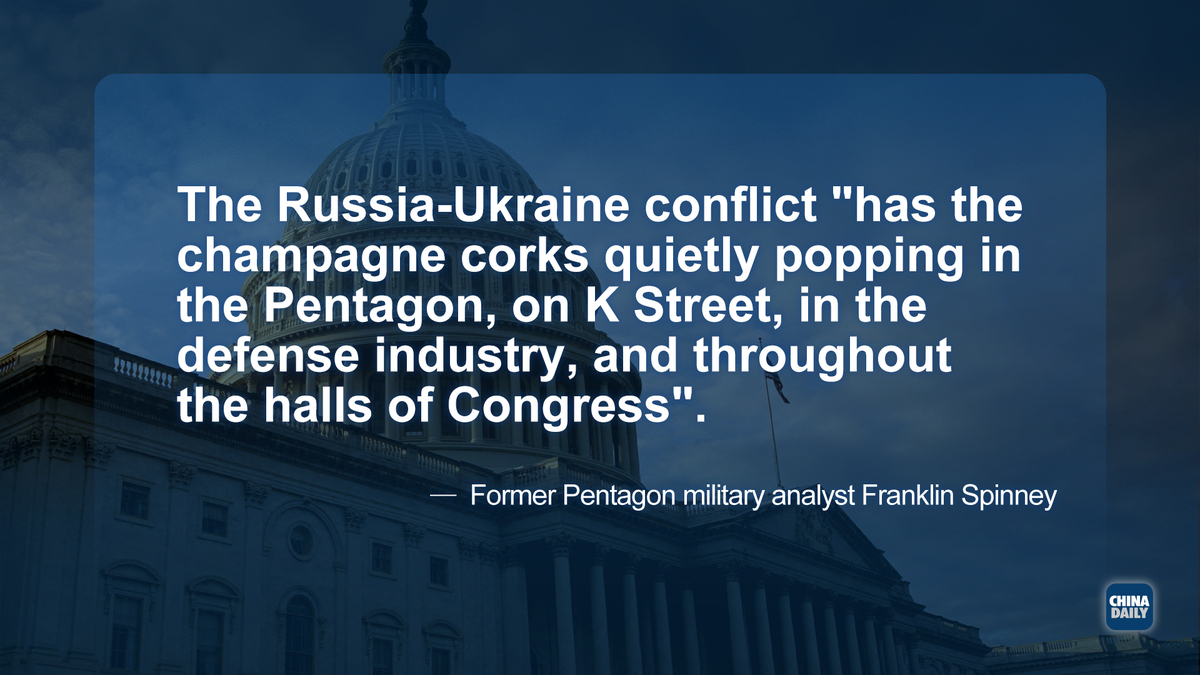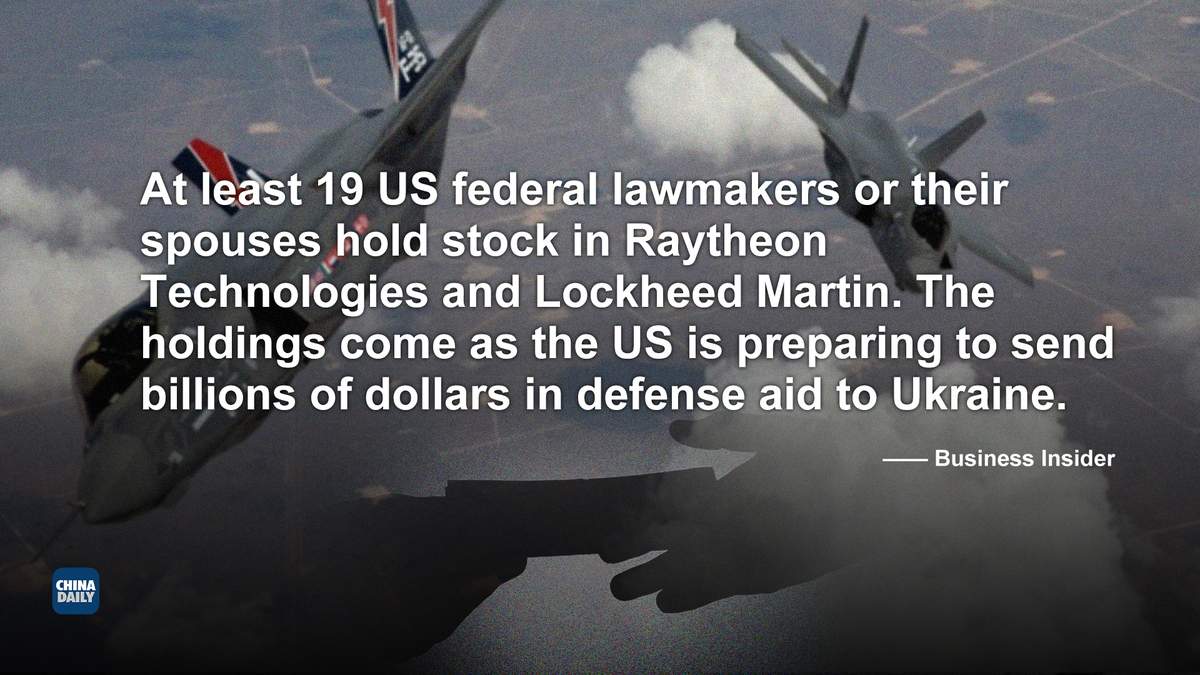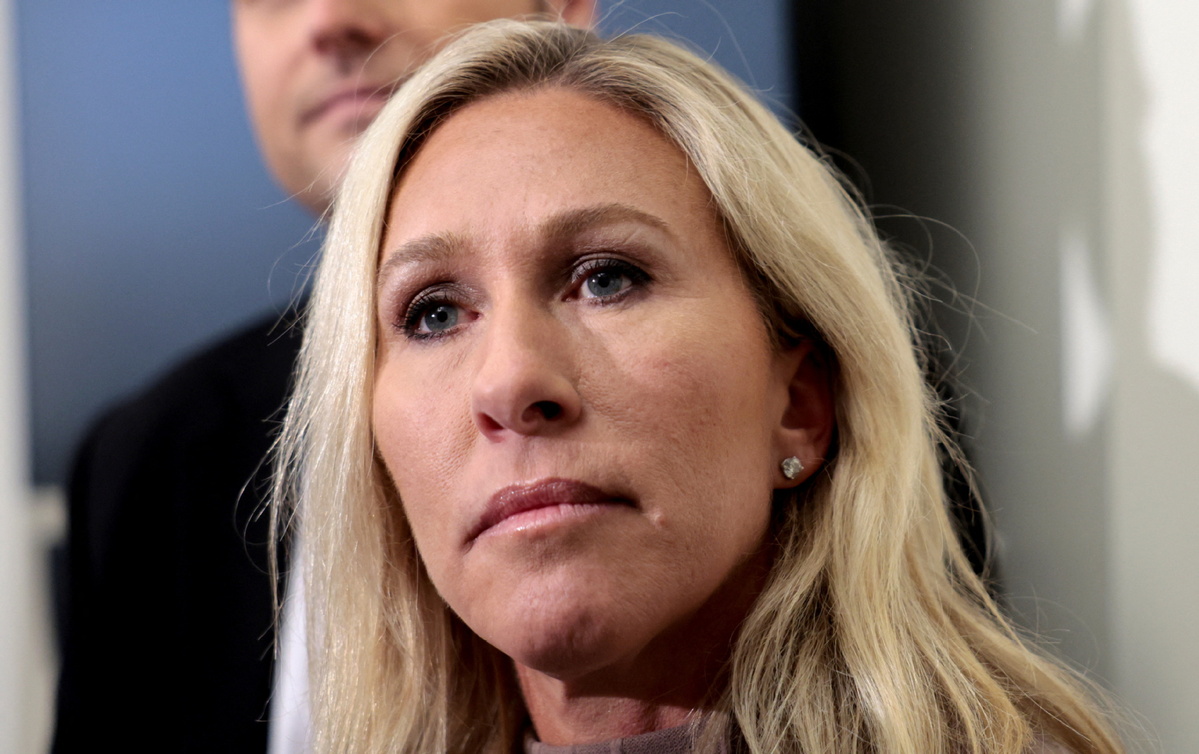US politicians financially benefit from foreign conflicts

Franklin Spinney, a former Pentagon military analyst, published in his blog an article titled "How the Narcotic of Defense Spending Undermines a Sensible Grand Strategy" which states that the Russia-Ukraine conflict "has the champagne corks quietly popping in the Pentagon, on K Street, in the defense industry, and throughout the halls of Congress".

The people celebrating because of the big gain that comes along with the wars and conflicts are not only the weapon makers, but also US politicians, who are big beneficiaries of current crises, whether in Ukraine or in the Middle East.
US politicians tend to be the decision makers for issues such as war versus peace.
There is evidence that it can be in their personal interest to continue these wars and conflicts rather than prevent them to ensure the continuation of their fiscal profits and gains.
Congressmen personally invest in defense contractors
A report by Business Insider revealed that at least 19 members of Congress or their spouses hold stock in the companies making weapons that are heading to Ukraine.
The US and NATO have sent more than 17,000 anti-tank weapons to Ukraine, including Javelins, according to The New York Times.
Website Military.com said these members of Congress could make a profit on US arms shipments to Ukraine.

According to Business Insider, these US federal lawmakers or their spouses hold stock in Raytheon Technologies and Lockheed Martin. The holdings come as the US is preparing to send billions of dollars in defense aid to Ukraine. Both companies' stocks - especially that of Lockheed Martin - have risen since the Russian military operation in Ukraine began on Feb 24.

Business Insider reported that among those investing in the defense contractors is Republican Representative Marjorie Taylor Greene of Georgia, who bought between $1,001 and $15,000 in Lockheed Martin shares on Feb 22.

Two days after her purchase, Greene wrote in a Twitter thread: "War is big business to our leaders."
"Tragically, America's foreign policy strategy over the past 20 years has been more for corporate profit and not for America's security and our own national interest," she wrote.























